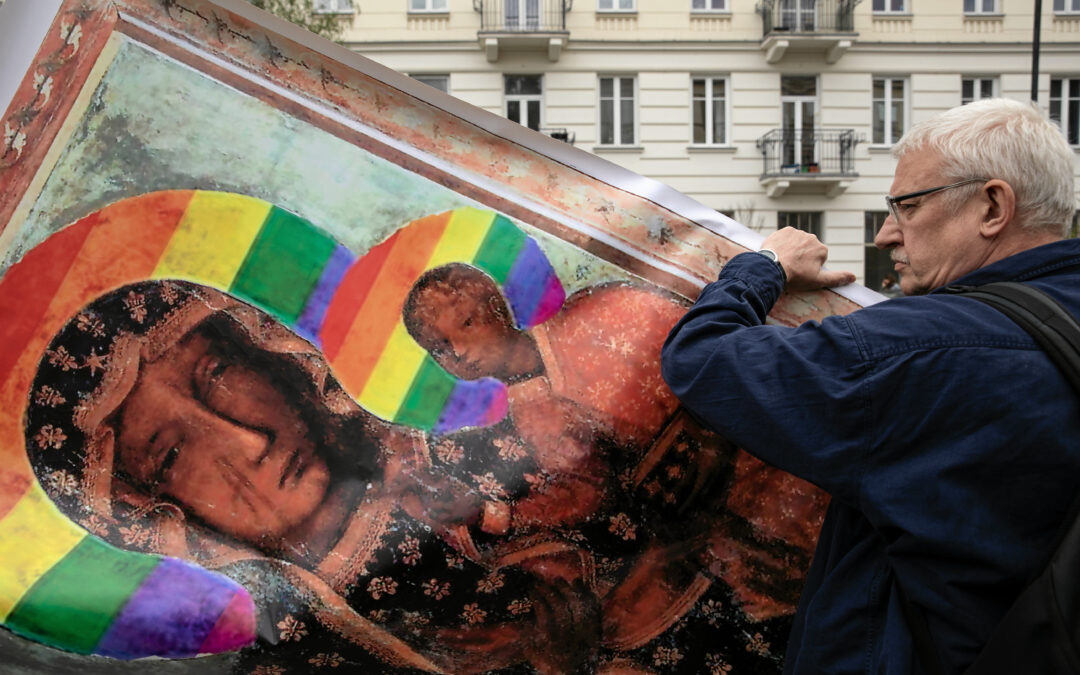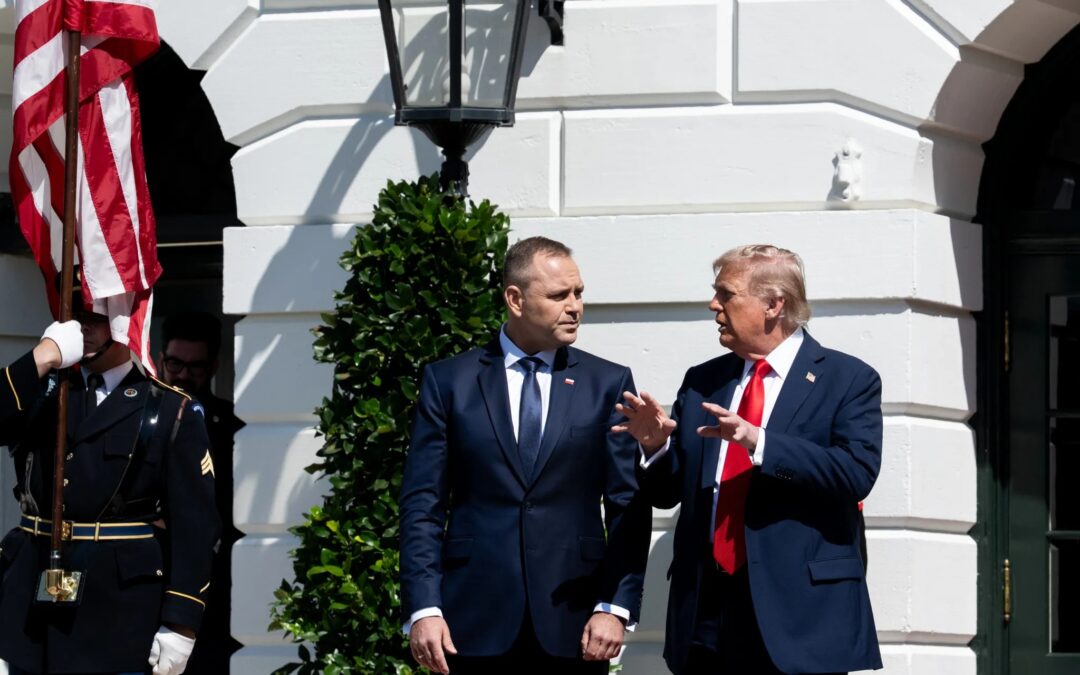A junior partner in Poland’s conservative ruling coalition has proposed toughening the country’s blasphemy law to allow anyone who “publicly insults the church” or interrupts mass to be jailed for up to three years.
“The current law is full of holes and encourages hatred towards those who express religious views,” said deputy justice minister Marcin Warchoł while unveiling the legislation alongside Marcin Romanowski, another deputy justice minister. “In Poland, there are shocking examples of aggression and profanation of religious symbols.”
As evidence, Warchoł – who hails from the hardline United Poland (Solidarna Polska) party led by justice minister Zbigniew Ziobro – cited the desecration of images of the Virgin Mary and disruptions of church services, as well as the spraying of slogans on the walls of churches.
Such incidents have in recent years occurred at LGBT parades – where images of the Virgin Mary and Jesus with rainbow halos have been displayed – and protests against a near-total abortion ban, which saw some demonstrators disrupt church services and graffiti church walls.
Speaking last week, Warchoł said that toughening the law was particularly necessary now because “we need to stand up for religious freedom when…[some] aim to expand freedom in other areas, such as the rights of LGBT people, at the expense of Christians”, reports Radio Maryja.
Under existing Polish law, it is a criminal offence, punishable by up to two years in prison, to “offend religious sentiment by publicly insulting an object of religious worship or a place intended for the public performance of religious rights”. But Wachoł argues that this wording is imprecise and too narrow.
His party’s proposed law would allow prosecution in a wider range of cases and regardless of whether individual believers report feeling offended.
“Whoever publicly mocks or scorns the church or other religious association”, or their doctrines and rituals, would face up to two years in prison, or up to three years if they carried out the crime “through use of the media”.
The proposed changes would also increase the punishment for interrupting religious ceremonies such as masses and funerals up to three years in prison, while removing from the law a specification that such actions be “malicious”.
Additionally, United Poland wants to introduce legislation that would exempt people from criminal charges if they were expressing religious beliefs, reports the Polish Press Agency (PAP).
Nowelizacja nie zmienia wysokości kar za przestępstwa przeciwko wolności sumienia i wyznania. Wprowadza zaostrzoną odpowiedzialność jedynie w przypadku szczególnie obciążających okoliczności. pic.twitter.com/kBrURrpX5n
— Marcin Warchoł (@marcinwarchol) April 14, 2022
In recent years Poland has seen a growing number of prosecutions under its blasphemy laws, with critics accusing the conservative government of seeking to suppress free speech.
Last year, three LGBT activists were found not guilty of offending religious feelings for adding rainbow colours to an image of the Virgin Mary and Jesus. A few weeks earlier, however, musician Nergal was convicted of the same crime for posting an image of a foot stamping on the Virgin Mary.
The ruling United Right coalition – which United Poland is a part of – came to power in 2015 partly on promises to introduce more conservative values in Poland’s public life. It sees Catholicism as an integral part of Polish identity.
United Poland, however, is known for taking even tougher positions on culture war issues than the main ruling party, Law and Justice (PiS). Many of its declared plans – such as withdrawing Poland from a European convention on violence against women and banning “LGBT ideology” – have never come to fruition.
Analysts see such policy announcements as a way for United Poland and its leader, Ziobro, to position themselves further to the right than PiS should the two ever stand separately at elections.
Today’s announcement on toughening blasphemy laws comes amid recent rumours that PiS is again in conflict with United Poland over judicial policies and relations with the EU. This morning, the Dziennik Gazeta Prawna daily cited anonymous PiS figures suggesting that early parliamentary elections could be called.
Main image credit: Dawid Zuchowicz / Agencja Gazeta

Daniel Tilles is editor-in-chief of Notes from Poland. He has written on Polish affairs for a wide range of publications, including Foreign Policy, POLITICO Europe, EUobserver and Dziennik Gazeta Prawna.




















